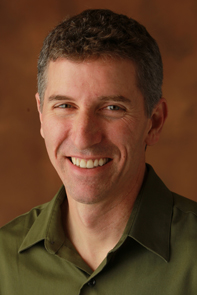CFT Publications Spotlight: Joe Bandy

How can we help students connect what they learn inside the classroom to the world outside the classroom? And, when we do so, how can we know what kind of an impact these experiences have on students and the broader community?
These are the questions that drive much of CFT assistant director Joe Bandy’s research agenda, and two of his recent publications provide responses to these questions.
- In 2018, Joe published an article entitled “Created Opportunities for Students to Apply Course Content Outside the Classroom.” This article was published for IDEA, a nonprofit organization focused on improving learning in higher education. As the title suggests, the article makes a case for experiential learning outside of the classroom by providing benefits of utilizing it and practical approaches that instructors can use to achieve learning outside of the traditional classroom space. In the article, Joe profiles several Vanderbilt faculty who facilitate experiential learning for their students, including Michael Bess (history), Shaul Kelner (sociology), and Cynthia Pascal (biomedical engineering). Joe shares additional ideas for experiential learning in the CFT’s extensive guide on community-engaged teaching, and he regularly works with individual instructors and groups of instructors at Vanderbilt to build experiential learning into the courses they teach.
- In 2017, Joe co-authored an article titled “Values-Engaged Assessment: Reimagining Assessment through the Lens of Democratic Engagement” in the Michigan Journal of Community Service Learning. The article emerged out of discussions at a conference of Imaging America, an association of artists and scholars helping academic institutions engage in meaningful ways with their communities. The 2017 article proposed critical questions about the values of civic engagement work and service-learning and how those values are assessed. Joe continues this line of inquiry through Imagining America’s Assessing the Practices of Public Scholarship working group, which he co-directs. “We are proposing,” said Joe, “methods of assessing the outcomes of community engagement that are consistent with the values of democratic and socially just forms of community empowerment.” This work will lead to an Imagining America “catalyst paper,” along with further writing on cases and models of assessment intended to help academic and community-based institutions realize their values in their work.
What’s next for Joe? Scholarship that builds on the work he’s done in recent years leading learning communities at Vanderbilt focused on matters of difference and power in the classroom. “I am working with current and former Graduate Teaching Fellows,” said Joe, “to produce several different articles on teaching race and class, drawing from the existing literature and qualitative empirical research on the challenges faculty encounter in these areas, and the innovations they embrace to meet them.”

Leave a Response